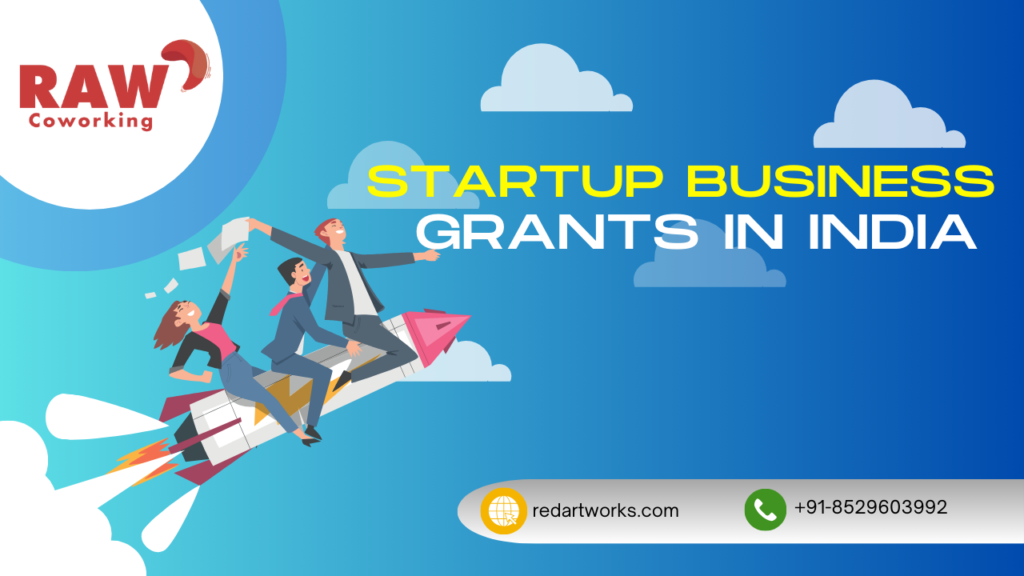Government Scheme for Startups

Welcome to the dynamic realm where entrepreneurial dreams take flight – the world of startups. In the ever-evolving landscape of business innovation, the role of government support stands as a catalyst for the success of emerging ventures.
We embark on a journey to unveil the manifold government schemes designed to nurture and propel startups forward. However, our focus is not solely on financial assistance and regulatory backing; we shine a spotlight on a key ingredient for collaborative success – coworking spaces.
These shared work environments, buzzing with creativity and collaboration, play a pivotal role in shaping the trajectory of startups, and we’ll explore how government initiatives seamlessly intertwine with the coworking ethos to foster innovation and growth. Join us as we navigate the intersection of government schemes, coworking spaces, and the thriving world of startups.
List of Top Government Funds for Startups
- Startup India Seed Fund Scheme (SISFS)
The Startup India Seed Fund Scheme (SISFS) serves as a critical engine for early-stage startups in India. Designed to bridge the crucial funding gap, SISFS provides financial assistance, expert guidance, and valuable resources to promising ventures navigating the initial stages of prototype development, market testing, and commercialization.
To ensure a startup can seamlessly conduct these aforementioned ventures from the outset of its market entry, the government launched the SISF scheme. Through funding of up to Rs. 20 lakhs for initial phases and Rs. 50 lakhs for market entry, SISFS empowers startups to test and refine their ideas, ultimately translating innovative concepts into tangible realities.
- Atal Innovation Mission (AIM)
The Atal Innovation Mission (AIM) is a flagship initiative launched by the Government of India in 2015 to promote a culture of innovation and entrepreneurship across the country. With a vision to cultivate one million children as neoteric innovators, AIM focuses on fostering curiosity, creativity, and imagination in young minds.
If you’re looking to explore your creativity, learn new skills, and embark on your entrepreneurial journey, consider engaging with AIM’s initiatives and resources. The Atal Innovation Mission is committed to nurturing the next generation of innovators and entrepreneurs, shaping a brighter future for India.
- Stand-Up India
The Stand-Up India scheme stands out as a beacon of opportunity for marginalized communities. Launched in 2015, this initiative aims to empower women and Scheduled Caste (SC) and Scheduled Tribe (ST) entrepreneurs by facilitating access to bank loans for setting up greenfield enterprises.
In simpler terms, the primary target of this scheme is to reduce financial burdens on small businesses by safeguarding them from the cascading effects of taxation. Therefore, companies under the purview of this scheme can enjoy significant tax exemptions while also getting a chance to enrol in courses and mentorship programmes which can pave the way for sustainable development.
- Pradhan Mantri Mudra Yojana
Pradhan Mantri Mudra Yojana (PMMY) is a government-backed initiative launched in 2015 to provide loans to small businesses and entrepreneurs. The scheme aims to provide collateral-free loans to micro, small, and medium enterprises (MSMEs) to help them grow and create jobs.
PMMY offers loans in three categories:
- Shishu: Loans of up to Rs. 50,000 for micro enterprises in the early stages of development.
- Kishore: Loans of Rs. 50,000 to Rs. 5 lakh for small enterprises that have been in operation for at least two years.
- Tarun: Loans of Rs. 5 lakh to Rs. 10 lakh for medium enterprises that have been in operation for at least five years.
PMMY has been a major success, with over 35 million loans disbursed worth over Rs. 3.6 lakh crore. The scheme has helped to create millions of jobs and boost economic growth in India. PMMY is a valuable resource for small businesses and entrepreneurs looking to grow their businesses and create jobs.
- Venture Capital Assistance Scheme (VCA)
- Qualcomm Semiconductor Mentorship Program (QSMP)
- Credit Guarantee Fund Trust for Micro and Small Enterprises (CGTMSE)
- Single Point Registration Scheme
- Modified Special Incentive Package Scheme (M-SIPS)
- Zero Defect Zero Effect (ZED) Certification Scheme
- Design Clinic Scheme for Design Expertise
- Dairy Entrepreneurship Development Scheme
- Credit Linked Capital Subsidy for Technology Upgradation (CLCSS)
- Atal Scheme for Promotion of Innovation and Research (ASPIRE)
How can RAW Coworking help startups with Funding?
RAW Coworking can help startups with funding in several ways:
- Network building: Events, workshops, investor access.
- Mentoring and guidance: Experienced mentors offer support.
- Resources and education: Workshops and sessions on fundraising.
- Investor showcase events: Present your idea to potential funders.
- Collaboration opportunities: Partner with established companies.
- Startup community: Learn from other entrepreneurs’ experiences.
- Incubator and accelerator programs: Access funding and mentorship.
Frequently Asked Questions
1. How many startup companies are currently operational in India?
The number of startups in India has increased thanks to sustained government initiatives in this regard. According to the recent data, there are 55,000 to 92,683 operational startups in India. This thriving ecosystem contributes significantly to innovation and economic growth.
2. What is the market size of the Indian startup industry?
India Startup Industry boasts a Market size of roughly $160-$200 Billion as of October 26, 2023. This figure is projected to reach $500 Billion by 2030, driven by factors like increased funding, digital adoption, and a growing talent pool.
3. Who is eligible for a Startup India scheme?
There are several factors to be eligible for any Startup India Scheme.
Here are a few:
1. One needs to be above 18 years of age
2. Their company must be either a private limited one or a partnership.
4. How do startups make money?
When a properly planned business gets launched, it will almost always lead to profits. Along with this, the location and management of the startup also play a vital role in its success. If initiatives like Startup India can boost its progress, success may come sooner too.
Conclusion
Registering under the Startup India Programme, a government scheme for startups, offers various benefits like Tax Benefits, Funding Options, Self-certification compliance, Fast track patent examination, and Networking opportunities. Since its launch in 2016, the program has been instrumental in nurturing the Indian startup ecosystem, helping entrepreneurs overcome challenges, and fostering innovation and economic growth. To be eligible, you must meet the definition of a startup, satisfy the age criteria and registration criteria. Overall, registering for the Startup India program is a great opportunity for any startup as it offers numerous benefits that help to overcome various challenges.

